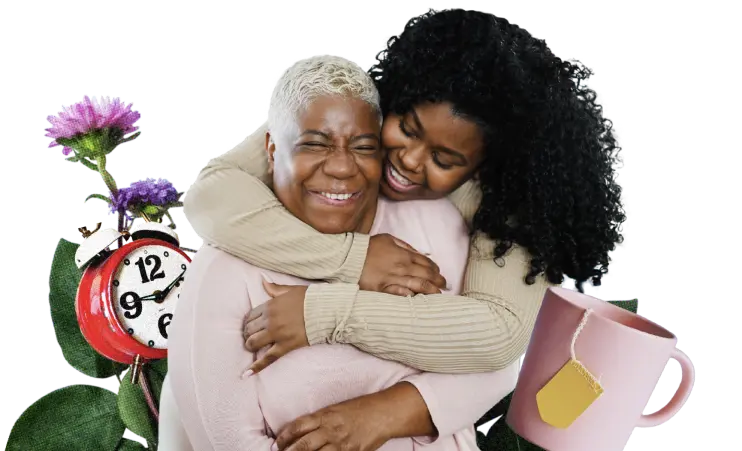
Family caregivers increasingly report strong feelings of guilt for not being able to “do it all” and live up to what their loved one(s) need, when in fact what they need is more support. Just like in dating, it’s not you, it’s the system.
Story Sparks:
- Fabrizio and Gerald’s child is developmentally disabled and needs a combination of weekly supportive services, but it’s extremely challenging to make it to all the appointments while also holding down the two full-time jobs they need to stay financially afloat. Their calendar app is feeling a little overworked.
- Hamish has been proud to physically care for his aging aunt Moira at home, but when her needs become more extensive and 24/7, it’s impossible for Hamish to handle one on his own, especially while working. He’s been trying to squeeze 27 hours into a day to no avail. Without access to professional long-term care, the only option is to move Moira into a care facility, but Hamish feels extremely guilty about the decision.
- Peggy moved her mother Quinn into her home after a dementia diagnosis, but regular family activities like game night or movie outings have become difficult to maintain with added care responsibilities. No time for superhero cosplay, no matter how epic their costumes are. The shift in dynamics has been tough on her kids, and Peggy feels guilty.
STORYTELLING TIP:
The individualistic nature of U.S. culture teaches us that we succeed or fail by our own merits, leading many people to internalize the inability to meet others’ care needs as a personal failure rather than a systemic one. Consider how new stories can offer a different perspective. Show us the matrix!
A quick note: scenarios described here are generalized from information that Caring Across Generations has collected through focus groups, polling, and other research. They are generalized scenarios and are not any one individual’s story, and they are not meant to be comprehensive of all experiences having to do with care. This resource is intended to illuminate new storytelling opportunities that also contribute to a more authentic and holistic representation of care on screen.
